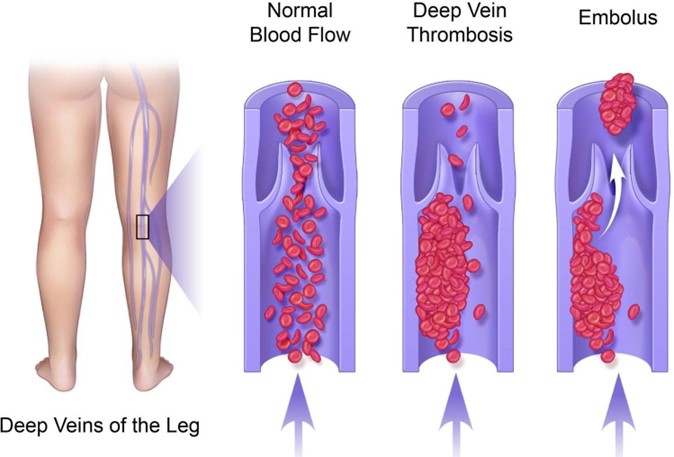A client with influenza is admitted to the medical unit. The nurse observes an unlicensed assistive personnel (UAP) preparing to enter the client's room to take vital signs and assist with personal care. The UAP has applied gloves and a gown. Which action should the nurse take?
Review the need for the UAP to wear a face mask while in close contact with the client.
Remind the UAP to apply a fitted respirator mask before entering the client's room.
Assign the UAP to provide care for another client and assume full care of the client.
Instruct the UAP to notify the nurse of any changes in the client's respiratory status.
The Correct Answer is A
Choice A Reason: Influenza is transmitted primarily through respiratory droplets. Droplet precautions require healthcare workers to wear a mask (surgical mask) when in close contact with a client. The UAP is already wearing gloves and a gown, which are appropriate for contact precautions but incomplete without a face mask for droplet protection.
Choice B Reason: A fitted respirator (e.g., N95) is unnecessary unless the client is suspected or confirmed to have an airborne transmissible disease such as tuberculosis. Influenza does not require airborne precautions.
Choice C Reason: Assigning the UAP to provide care for another client and assuming full care of the client is not necessary or feasible because it would increase the workload of the nurse and reduce the quality of care for both clients. The UAP can still assist with care for clients with influenza as long as they follow proper infection control measures.
Choice D Reason: Instructing the UAP to notify the nurse of any changes in the client's respiratory status is important but not a priority action because it does not address the issue of preventing transmission of influenza. The nurse should first ensure that the UAP wears appropriate personal protective equipment before entering the client's room.
Nursing Test Bank
Naxlex Comprehensive Predictor Exams
Related Questions
Correct Answer is D
Explanation
Choice A Reason: Remaining with this client and monitoring the vital signs while the nurse takes the call is not an appropriate instruction for the unit clerk. The unit clerk is not qualified to monitor vital signs or provide direct care to clients. The nurse should delegate this task to another licensed nurse or UAP who has been trained and validated in this skill.
Choice B Reason: Asking the healthcare provider to remain on "hold" until the nurse can confirm the prescription is not an appropriate instruction for the unit clerk. The unit clerk is not authorized to take verbal or telephone orders from healthcare providers. Only licensed nurses or pharmacists can do so, following specific policies and procedures.
Choice C Reason: Writing down what is prescribed and then repeating it back to the healthcare provider is not an appropriate instruction for the unit clerk. The unit clerk is not authorized to take verbal or telephone orders from healthcare providers. Only licensed nurses or pharmacists can do so, following specific policies and procedures.
Choice D Reason: Telling the healthcare provider the nurse will return the phone call as soon as possible is an appropriate instruction for the unit clerk. The unit clerk can relay messages between the healthcare provider and the nurse, but cannot take orders or give information about clients. The nurse should prioritize calling back the healthcare provider after stabilizing the unstable client.
Correct Answer is A
Explanation
Choice A Reason: This is the correct answer because the nurse should immediately inform the healthcare provider of the medication error and the client's condition. The healthcare provider may order antidotes, such as protamine sulfate for heparin and vitamin K for warfarin, to reverse the anticoagulant effects and prevent bleeding complications.
Choice B Reason: Monitoring for signs of bleeding is important but not the priority action for the nurse because it does not address the cause of the problem or prevent further harm. The nurse should monitor the client's vital signs, hemoglobin, hematocrit, and urine output, as well as check for any signs of bleeding, such as bruising, petechiae,
hematuria, hematemesis, melena, or epistaxis.
Choice C Reason: Completing an adverse occurrence report is important but not the priority action for the nurse because it does not provide immediate intervention or treatment for the client. The nurse should complete an
adverse occurrence report after notifying the healthcare provider and implementing appropriate actions. The report should include the details of the error, such as the time, dose, route, and name of the medications involved, as well as the client's response and outcome.
Choice D Reason: Obtaining blood for coagulation studies is important but not the priority action for the nurse because it does not provide immediate intervention or treatment for the client. The nurse should obtain blood
samples for coagulation studies, such as prothrombin time (PT), international normalized ratio (INR), and activated partial thromboplastin time (aPTT), after notifying the healthcare provider and following their orders. The results of these tests can help determine the extent of anticoagulation and guide further therapy.

Whether you are a student looking to ace your exams or a practicing nurse seeking to enhance your expertise , our nursing education contents will empower you with the confidence and competence to make a difference in the lives of patients and become a respected leader in the healthcare field.
Visit Naxlex, invest in your future and unlock endless possibilities with our unparalleled nursing education contents today
Report Wrong Answer on the Current Question
Do you disagree with the answer? If yes, what is your expected answer? Explain.
Kindly be descriptive with the issue you are facing.
